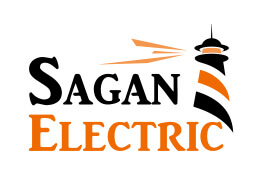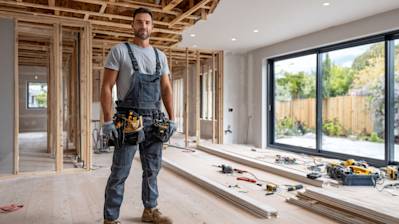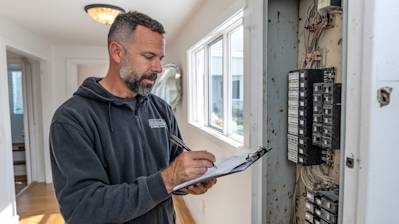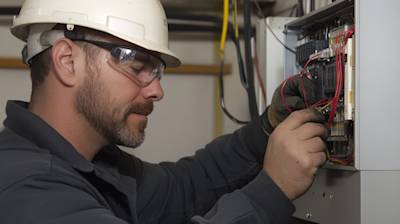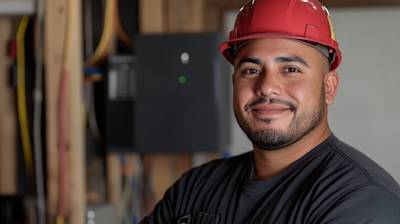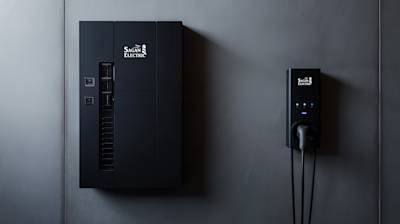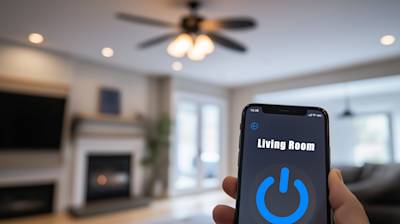Smoke alarms are a vital component of home safety. They can detect smoke and alert you to the presence of a fire, giving you time to evacuate and call for help. In fact, according to the National Fire Protection Association (NFPA), having working smoke alarms in your home can cut your risk of dying in a fire by half. But how many smoke alarms do you need in your home? In this blog post, we'll explore the basics of smoke alarms and provide tips for determining the right number for your home.
The Importance of Smoke Alarms in Your Home
Smoke alarms are critical to home safety. They can detect smoke and alert you to the presence of a fire, giving you time to evacuate and call for help. According to the NFPA, three out of five home fire deaths occur in homes without working smoke alarms. Having a working smoke alarm in your home can cut your risk of dying in a fire by half.
Smoke alarms are designed to detect smoke and emit a loud, piercing sound to alert you to the presence of a fire. They can provide an early warning, giving you and your family time to evacuate before the fire spreads.
How Many Smoke Alarms Do You Need? The Basics
So, how many smoke alarms do you need in your home? The answer depends on the size and layout of your home. The NFPA recommends that you have smoke alarms installed in every bedroom, outside each sleeping area, and on every level of your home, including the basement. If your home has an attic or a crawl space, you should also install smoke alarms in those areas.
It's important to note that the NFPA's recommendations are the minimum requirements for home fire safety. You may need more smoke alarms depending on the size and layout of your home.
Understanding Smoke Alarm Guidelines: What You Need to Know
Smoke alarms are regulated by the NFPA, and they must meet certain standards to ensure they are effective in detecting smoke and alerting you to the presence of a fire. The NFPA has several guidelines for smoke alarms, including:
- Smoke alarms should be installed in every bedroom, outside each sleeping area, and on every level of your home, including the basement.
- Smoke alarms should be interconnected so that when one alarm sounds, they all sound.
- Smoke alarms should be tested monthly to ensure they are working properly.
- Smoke alarms should be replaced every 10 years.
Factors to Consider When Determining the Number of Smoke Alarms for Your Home
When determining the number of smoke alarms you need in your home, there are several factors to consider:
- The size of your home: Larger homes may require more smoke alarms.
- The layout of your home: If your home has multiple levels or separate sleeping areas, you may need more smoke alarms.
- The presence of other fire safety equipment: If you have a fire sprinkler system or fire extinguishers, you may need fewer smoke alarms.
- Your family's mobility: If you have family members with limited mobility or who may not be able to hear a smoke alarm, you may need more smoke alarms.
The Ideal Placement for Smoke Alarms: Tips and Best Practices
The placement of smoke alarms is crucial to their effectiveness in detecting smoke and alerting you to the presence of a fire. Here are some tips and best practices for placing smoke alarms in your home:
- Install smoke alarms in every bedroom, outside each sleeping area, and on every level of your home, including the basement.
- Install smoke alarms at least 10 feet away from cooking appliances to prevent false alarms.
- Install smoke alarms on the ceiling or high on a wall. Avoid placing smoke alarms near windows, doors, or ducts, as drafts can affect their performance.
- Do not install smoke alarms near bathrooms or other humid areas, as moisture can affect their performance.
- Test your smoke alarms monthly to ensure they are working properly.
Hardwired vs. Battery-Powered Smoke Alarms: Pros and Cons
Smoke alarms can be either hardwired or battery-powered. Here are the pros and cons of each:
Hardwired Smoke Alarms
Hardwired smoke alarms are connected to your home's electrical system and typically have a battery backup. Here are some pros and cons of hardwired smoke alarms:
- Pros: Hardwired smoke alarms are more reliable than battery-powered smoke alarms because they are always connected to your home's electrical system. They also have a battery backup in case of a power outage.
- Cons: Hardwired smoke alarms require professional installation and can be more expensive than battery-powered smoke alarms.
Battery-Powered Smoke Alarms
Battery-powered smoke alarms are powered by batteries and do not require any wiring. Here are some pros and cons of battery-powered smoke alarms:
- Pros: Battery-powered smoke alarms are easy to install and can be installed anywhere. They are also typically less expensive than hardwired smoke alarms.
- Cons: Battery-powered smoke alarms are only as reliable as their batteries. They require regular maintenance to ensure their batteries are working properly.
Maintaining Smoke Alarms: A Crucial Step in Home Fire Safety
Maintaining your smoke alarms is crucial to their effectiveness in detecting smoke and alerting you to the presence of a fire. Here are some tips for maintaining your smoke alarms:
- Test your smoke alarms monthly by pressing the test button.
- Replace your smoke alarm batteries once a year, or when the low battery warning chirps.
- Clean your smoke alarms regularly with a vacuum cleaner or soft brush to remove dust and debris.
- Replace your smoke alarms every 10 years.
What to Do When Your Smoke Alarm Goes Off: Emergency Preparedness Tips
If your smoke alarm goes off, it's important to act quickly to ensure your safety. Here are some emergency preparedness tips:
- Evacuate your home immediately.
- Call 911 to report the fire.
- If possible, close doors behind you to slow the spread of the fire.
- If you encounter smoke, crawl low to the ground to avoid inhaling smoke.
- Never re-enter a burning building.
Smoke Alarms and Smart Home Technology: What's Available?
Smart home technology has revolutionized the way we live, and it's also changing the way we approach home safety. Here are some smart home technology options for smoke alarms:
- Smart smoke alarms: These smoke alarms connect to your home's Wi-Fi and can alert you to the presence of a fire via your smartphone or tablet. Some smart smoke alarms also have features like voice alerts and the ability to silence false alarms.
- Smart home security systems: Some smart home security systems include smoke detectors as part of their package. These smoke detectors can be monitored by the security company, who can alert the fire department in case of an emergency.
- Smart home hubs: Smart home hubs like Amazon Echo and Google Home can be used to control smart smoke alarms and other home safety devices.
Investing in Smoke Alarms for Your Home's Safety
Investing in smoke alarms for your home's safety is a small price to pay for the peace of mind that comes with knowing you and your family are protected in case of a fire. Here are some tips for investing in smoke alarms:
- Choose smoke alarms that meet the NFPA's guidelines.
- Consider installing both hardwired and battery-powered smoke alarms for added protection.
- Test your smoke alarms regularly to ensure they are working properly.
- Replace your smoke alarms every 10 years.
Conclusion
Smoke alarms are a crucial component of home fire safety. They can detect smoke and alert you to the presence of a fire, giving you and your family time to evacuate and call for help. When determining the number of smoke alarms you need in your home, consider factors like the size and layout of your home, the presence of other fire safety equipment, and your family's mobility. Install smoke alarms in every bedroom, outside each sleeping area, and on every level of your home, including the basement. Test your smoke alarms monthly and replace them every 10 years. And remember, investing in smoke alarms for your home's safety is a small price to pay for the peace of mind that comes with knowing you and your family are protected in case of a fire.
If you need help installing or maintaining your smoke alarms, contact Sagan Electric. We are a leading electrical contractor in Sacramento, CA, and we offer a wide range of electrical services, including smoke alarm installation and maintenance. Contact us today to schedule an appointment.
Tags: smoke alarms,
